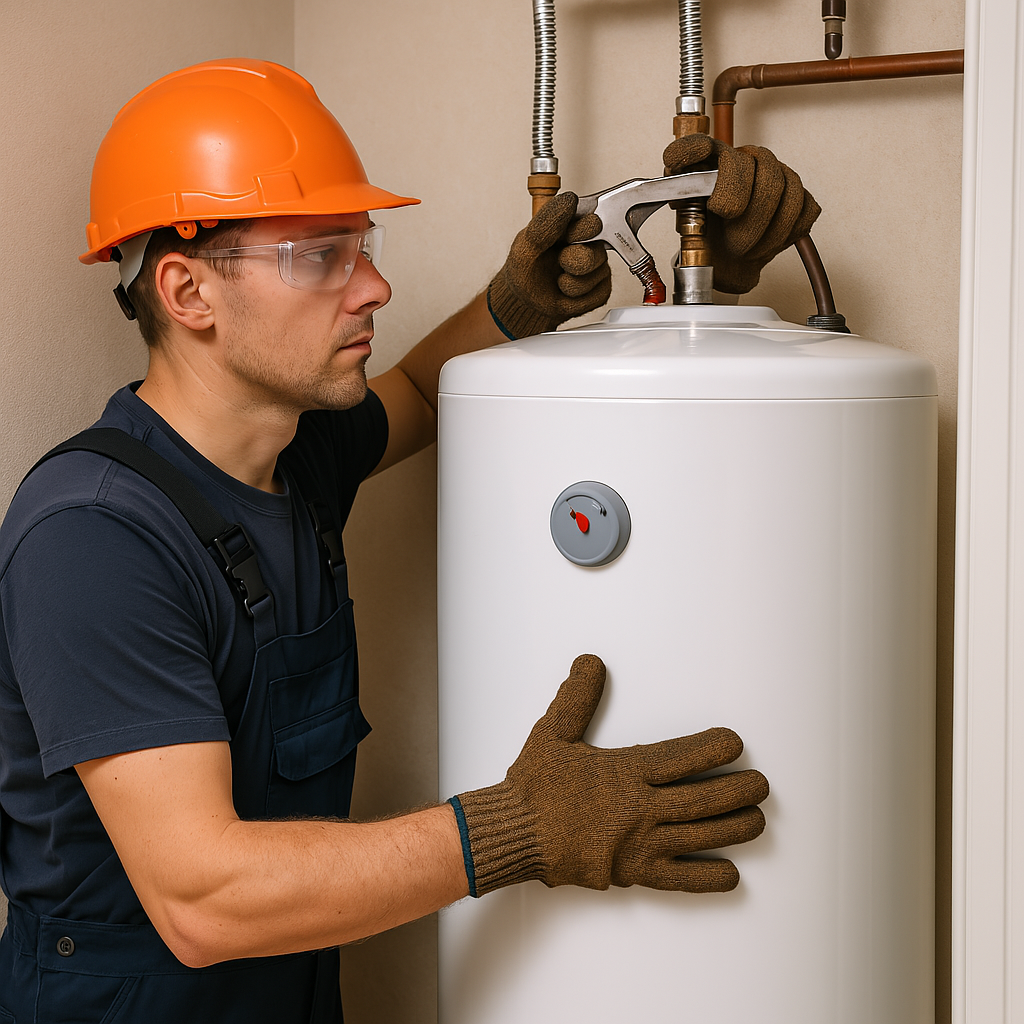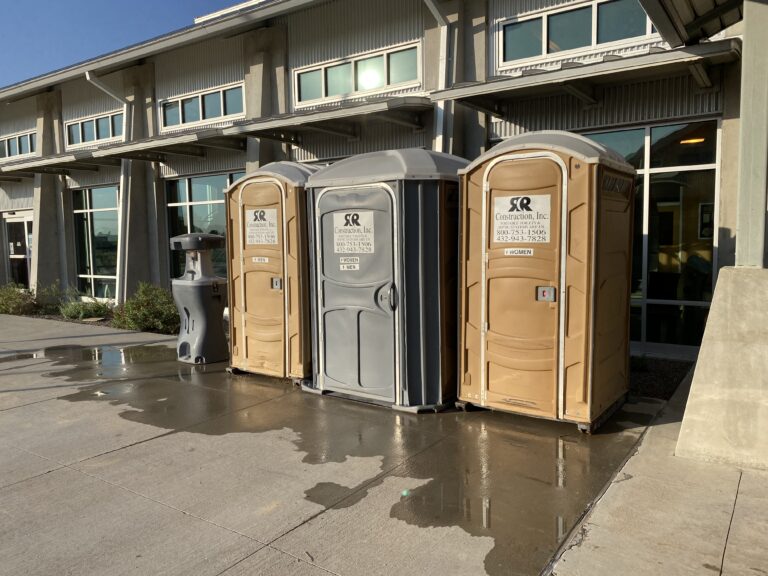Hot Water Tank Replacement
There are several key reasons why a homeowner would consider hot water tank replacement such as age, efficiency and performance. The typical hot water heater needs to be replaced every 8-12 years on average depending on usage and maintenance. Once a hot water heater gets to this age the efficiency of the hot water tank decreases due to mineral deposits forming inside the coils which results in a more costly utility bills.
Not only are the utility bills increasing but the heater Coefficient of Performance (COP) decreases because you have less effective heat transfer which means that the heater runs out of hot water quicker or takes longer to heat up. If hear strange noises such as marbles rumbling, banging or unusual popping, this could be an indication of excessive mineral sediment buildup, which also reduces the efficiency of hot water heater.
Unusual banging, rumbling and popping may be the first indication of a inefficient or aging hot water tank but visually examining the hot water tank should be the next step. If you are noticing your hot water tank leaking, you should consider a water heater replacement. Specifically look for a water heater tank leaking from the bottom. If a hot water tank is leaking from the bottom, it is indication of sediment buildup which leaks to tank corrosion and failure or a faulty drain valve.
Examination of the top of the hot water tank should also be performed to determine if the water heater is leaking from the top. A hot water tank leaking from the top is most likely a loose or failing inlet/outlet connection or a malfunctioning Temperature and Pressure Relief Valve. In both cases, the situation can quickly lead to thousands of dollars of damage if left unattended.
As the hot water tank ages, it can develop rust and corrosion both internally and externally. As many hot water heaters in Texas are installed in attacks, a leaking hot water tank located in the attic can cause thousands of dollars in repair bills if a hot water tank is not replaced. We recommend frequent inspection of older hot water tanks to prevent costly leaks. If you start noticing rust on a hot water tank, we recommend a hot water tank replacement or upgrading to a tankless hot water system that can be installed outside or in a safer position.
At R&R Waste and Septic, our plumbing team is highly experienced in water heater services, including tank replacements and tank-to-tankless conversions. Our licensed Master Plumber brings decades of experience in hot water and water filtration systems. We pride ourselves on delivering fast, professional, and knowledgeable service, and we’re always transparent about water heater replacement cost and water heater installation cost. Financing options are also available, making it easier for you to invest in reliable hot water solutions.
Tankless Water Heaters
If your hot water tank is nearing it useful life, experiencing more frequent repairs, or looking for a more efficient system, you may want to consider converting to a tankless water heater from a traditional hot water tank. Many houses in Texas place the hot water tank in the attack. As many of the bedrooms are located upstairs, the idea of a 500 – 600 pound weight above a child’s bed is a reason to convert from a hot water tank to tankless system. Fortunately, R&R’s is an expert in converting hot water tank to a tankless system. The cost to convert to tankless water heater can be recouped lower utility bills and maintenance expenses. Our trained technicians and Master Plumber will work with the homeowner on placement and a design a system that can deliver almost instant hot water.
Hot Water Tank to Tankless Conversion
There are many reasons why to consider converting from a hot water tank to a tankless hot water system. One of the main drivers in the cost savings with a tankless system. Consider that a hot water tank also keeps the water at 150 degree F regardless if it is being used or not. If you are on vacation on for a week, you are still paying to keep the hot water hot, even with no usage. With a tankless system, you pay for hot water only when there is a hot water demand. On average, we have found that hot water tankless systems are 24-34% more efficient than hot water tanks. The more efficient tankless hot water system will result in less expensive utility bills. This performance benefit alone drives many homeowners to explore converting to tankless water heater cost and installation options.
Growing households should consider a tankless hot water heater. Hot water tanks have a finite amount of store hot water, typically 25 – 40 gallons. One the hot water is used up, the hot water tank slowly heats up more water. In households with many people taking showers at the same time (before work/school), or multiple baths at night, running out of hot water is a definite possibility. A tankless hot water heater provides an infinite amount of hot water. This is because the tankless hot water heater is consistently heating the water. Ensuring everyone has hot water for showers, baths, dishes, is a main reason many people are converting from a tank to tankless hot water system.
Why is my hot water tank in the attic? Many Texas homeowners have their hot water heaters in the attic or crawlspace above bedrooms. There are key main reasons why homebuilders frequently install hot water heaters in attics. First, hot water heaters take up valuable interior space. To maximize available space while keeping the hot water tank away from the elements, many tanks are installed in the attics. Second, as many of the showers and bathtubs are located next to bedrooms, it minimizes piping to these fixtures. The major downside of storing hot water heaters in the attic is that a 40 gallon hot water tank weighs between 450 – 550 pounds. As many are installed directly above a bedroom, this is an unacceptable risks to parents. Secondly, if the hot water tank leaks, will damage everything below it. For a two story house, this could result in thousands of dollars of damage. We are experts in converting hot water tanks to tankless hot water systems. We can install the tankless heaters outside or in a garage and use the existing piping to deliver hot water to the source while eliminating many of the risks with a hot water tank in the attic.
A common question we are asked do tankless water heaters last longer? Many hot water tank heaters have expected lifespans of 8-12 years. A tankless hot water unit can last 15 – 20 years with proper maintenance. There are several reasons why tankless water heaters last longer. First, there is no stored water storage. On average, a hot water tanks will hold 40 – 60 gallons of hot water regardless of usage. Over time, this storage puts excessive stress on the tank resulting in corrosion and leaks. Secondly, as hot water stays hot in the tanks, sediment starts building up which results in internal rust and sediment accumulation. As tankless water units are on-demand, they do not buildup excessive mineral scaling and sediment and there is no water storage which both lead to longer expected life.
Lastly, due to reduced risk, higher efficiency, longer lifespan and space-saving features, a tankless water system will result in an increased home value. Many homebuyers prefer tankless systems over hot water tanks.
Beyond the practical benefits, installing a tankless system can boost your home’s value. Many prospective buyers ask, “Are tankless water heaters better for long-term investment?” We have found that a system that offers lower energy use, longer lifespan, and safer design can increase the value of an asset, such as your home. If you’re concerned about your water heater leaking, or if you’re exploring a hot water heater replacement, contact R&R today. We’re experts in both hot water heater replacement and tankless conversions, and we’re ready to help you select the best solution for your needs and budget.
If you have problems with you hot water tank leaking or considering replacing your hot water tank with a tankless hot water unit, contact R&R today for immediate assistance.


